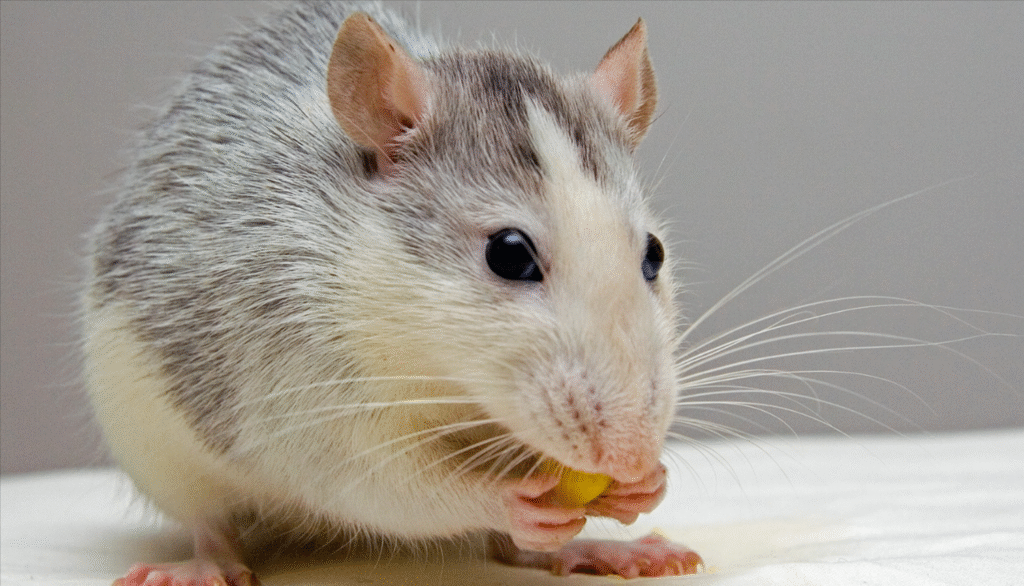10+ Funny Facts About Rats

Fun Facts About Rats
Rats are often misunderstood or overlooked creatures, usually thought of as negative. Yet, these tiny mammal is fascinating with extraordinary abilities and behaviours. Although they may have not been the primary pet that pop into your mind Rats have become popular as pets because of their ability to communicate and their social nature. Here are 10 interesting facts about rats that will cause you to reconsider their status and recognize their unique characteristics.
10+ interesting facts about rats
1. Rats Are Highly Intelligent Creatures
Rats are among the rodents with the highest intelligence that have cognitive abilities similar to that of dogs. They have exceptional problem-solving abilities they can master mazes and are able to learn tricks. The intelligence of rats has been extensively studied and has revealed the ability of their brains to comprehend causal and effect relationships, retain complex routes, and exhibit empathy towards rats who are in trouble. This is not just fascinating to observe, but also fun to train.
2. Rats Have an Incredible Sense of Smell
Rats have a remarkable sense of smell that can be used to navigate around their surroundings as well as communicate with each other. Their olfactory bulbs that are which process smells are considerably larger than the ones in humans and allow them to detect scents even at very low levels. The keen sense of smell allows rats to detect food sources, detect predators and distinguish individuals in their colony. Incredibly, this skill has resulted in the use for trained animals in many fields, like the detection of landmines and diagnosing illnesses.
3. Rats Are Social Animals
Rats are naturally social creatures who thrive in large groups. They reside in colonies, and form strong bonds with each other. They communicate using body language, vocalizations and pheromones. These help create social hierarchies and ensures cohesion within groups. Rats as pets usually involves adopting more than one as they require companionship in order to remain healthy and content. Their nature of social interaction is what makes them a pet with a lot of affection. love to interact with human caretakers as well as their companions.
4. Rats Can Squeak, Chirp, and Even Purr
Rats use a variety of vocalizations to communicate. While the majority of folks are aware of sounds that rats produce, they also make chirps and purring noises. They can be used to express different emotions, including happiness, excitement or even discontent. For example, a rodent might chirp while playing or playing, whereas purring is often heard when they’re being pet or cuddled. This indicates the relaxation and pleasure.
5. Rats Are Excellent Climbers and Swimmers
Rats are exceptionally agile and can traverse a variety of environments easily. They are fantastic climbers, able of climbing fences and walls to avoid predators or seek food. In addition, rats are skilled swimmers, and can float on in water for several days when needed. Their ability to adapt makes them tough animals that can flourish in a variety of environments, including urban zones, where they usually have shelter and food sources.
6. They Have a Unique Tooth Structure
Rats have a distinct dental structure that includes four sharp incisors which continue to grow over their entire lives. To stop their teeth from growing too much the rats gnaw on various substances like cardboard, wood, or even certain kinds of food. This is a natural process that is vital to their health and helps them to maintain a healthy dental hygiene. Making sure they have the right chewing material for rats in the home is vital for ensuring their teeth stay in good health and are manageable.
7. Rats Have a Strong Sense of Community
Rats are renowned for their cooperation in their colony. They usually collaborate to take care of youngsters, share food, and shield each other from predators. Studies have shown that rats are able to show altruistic behavior by helping other colony members when they are in trouble. This sense of community is crucial to its survival out in nature, as cooperation can make the difference between the end of life and death.
8. Rats Can Recognize Human Faces
The results of studies have revealed that rats are able to identify human faces. They are able to associate particular individuals with positive experiences like getting treats or food. This is a sign of their ability to remember as well as social intelligence. In turn, pets can form bonds of trust with their owners. They are often seeing them in the distance and responding with enthusiasm.
9. Rats Have Been Used in Scientific Research for Over a Century
Rats have played a major part in research conducted by scientists over the past 100 years, making advances in a variety of areas, such as psychology, medical science, and genetics. Their biological resemblance to humans are a great model to study diseases as well as drug-related effects and the behavior of. Rat research has resulted in breakthroughs in the study of conditions like diabetes, cancer and neurological diseases which prove their value beyond their infamous status as rodents.
10. Rats Can Be Trained for Various Tasks
Rats can be trained, and their ability to think is able to master a range of tasks. They are able to traverse mazes, do tricks, and even take part in agility classes. Rats that have been trained can be employed in therapy settings offering emotional comfort and support for individuals. The ability of rats to adapt and learn is what makes them valuable pets showing their abilities beyond the traditional pet role.
11. Rats Have an Impressive Reproductive Rate
Rats are renowned for their speedy reproduction and this is the reason they are able to thrive in a variety of situations. Female rats is able to give birth to litters of 6-12 pups on a regular basis throughout the year. With gestation times of between 21 and 23 days, it means that populations are likely to grow rapidly when the conditions favor. This has aided in the high prevalence that rats are found in metropolitan zones, where they typically have plenty of resources for food as well as shelter.
12. Rats Have Cultural Significance
In certain cultures, rats have earned an image of esteem, indicating resilience and adaptability. For instance in Hindu tradition the rat is regarded for its role as a vehicle used by god Ganesh who symbolizes knowledge and the capacity to conquer the obstacles. Contrary to this to other cultures, rats are usually seen as negative, because they are associated with filth and disease. Knowing these cultural views could help change our perceptions of rats as nuisances, to animals that deserve respect.
13. Rats Can Smile!
Although they don’t smile the same way as humans do, studies have shown that rats display behaviors which resemble smiles when they’re happy. When playing, or enjoying positive interactions from their companions, the rats can exhibit certain facial expressions, for example, relaxing their whiskers or displaying their teeth. This indicates their mood and indication that they are experiencing happiness and satisfaction.
14. They Are Clean Animals
Despite their bad reputation that they’re dirty, rats are actually quite tidy creatures. They clean themselves frequently as do cats and frequently designate certain spaces in their homes for sleeping, eating and for elimination. Pet rats can be taught to use a toilet and are therefore low-maintenance pets. They are naturally clean and a further reason they make excellent companions for those who create a healthy and clean living space.
15. Guinea Pigs Are Their Closest Relatives
Rats are part of the family of Muridae which includes voles, mice, and Gerbils. Incredibly, guinea pigs are also rodents, however they belong to a distinct family known as Caviidae. Despite this distinction, rats and guinea-pigs have a number of behaviours and social patterns which makes them popular pet owners. Knowing these connections can give insights into the care and requirements that both breeds.
Rats are often vilified and misunderstood, but they’re smart, fascinating, and social creatures. Their remarkable ability to solve problems to their ability to foster friendship and emotional bonding rats have a lot to provide as pet or research subjects. Every one of these interesting facts highlights the unique characteristics and achievements of these animals, providing an understanding of their significance in our lives. If you’re thinking of the possibility of adopting a rat or taking a look from afar these fascinating animals merit taking a second look.







